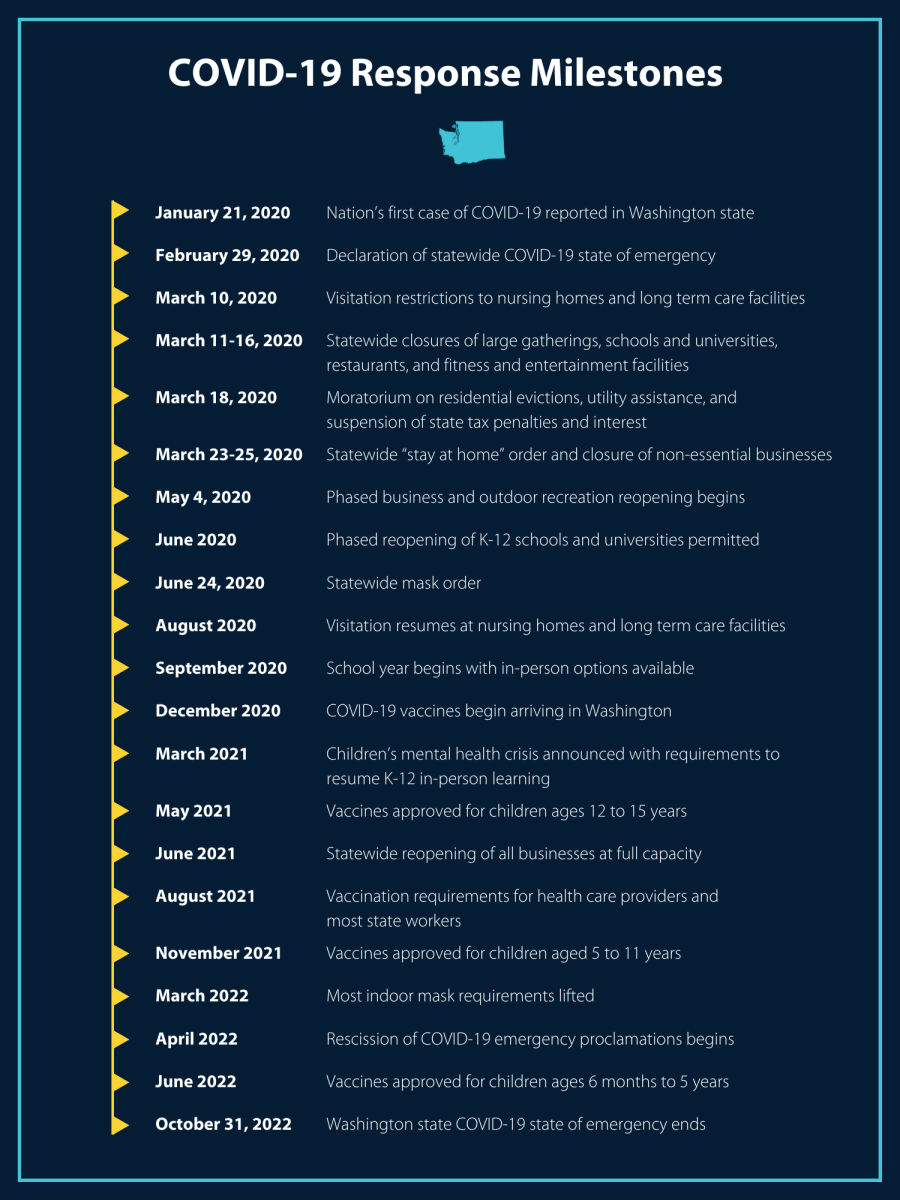
Gov. Jay Inslee today announced the upcoming rescission of all remaining COVID-19 emergency proclamations and state of emergency by Oct. 31.
Nearly three-quarters of the governor’s 85 COVID-19 emergency orders have already been lifted, and an additional 13 health care related orders will end Oct. 27. The remaining 10 orders to be lifted on Oct. 31, including the underlying state of emergency.
“We’ve come a long way the past two years in developing the tools that allow us to adapt and live with COVID-19,” Inslee said. “Ending this order does not mean we take it less seriously or will lose focus on how this virus has changed the way we live. We will continue our commitments to the public’s well-being, but simply through different tools that are now more appropriate for the era we’ve entered.”
Though the state’s emergency orders are ending, public health leaders continue to emphasize the importance of vaccines and masks in keeping communities safe. Vaccines and therapeutic treatments are available to prevent hospitalizations and death. However, COVID-19 remains one of the deadliest infectious viruses in the United States. The virus kills more than 300 people nationally every day, including more than 10 people a day in Washington state.
“Governor Inslee’s rescission of these remaining emergency orders marks an important transition for the state of Washington, but that does not mean that COVID-19 is not in our state anymore,” said Secretary of Health Umair A. Shah, MD, MPH. “We must move forward from a pandemic response to adapting our behaviors to coexist with the COVID-19 virus. Through the continued diligence of Washingtonians, combined with access to resources like the Say Yes! COVID Test program, WA Notify, and Care-A-Van, we will continue our path to recovery.”
Washington was the first state in the U.S. with a reported case of COVID-19. Inslee was swift to enact protective measures that have since resulted in one of the lowest per capita death rates in the nation. If the rest of the nation had the same death rate as Washington, some 433,000 lives would have been saved. Inslee was invited to testify before Congress in January to discuss Washington’s science-based response, including the importance of responding to the mental and psychological toll of the pandemic.
Washington legislators also approved significant relief measures to help businesses and households with the financial impacts of the pandemic, including expanded unemployment benefits, rent assistance, an eviction moratorium, utility assistance, and numerous small business grant and assistance programs.
The statewide Face Covering Order issued by the state Department of Health will remain in place for health care and long-term care sittings, as well as correctional facilities under certain circumstances after the state of emergency ends. The governor is also looking at options to ensure there are protections for workers who choose to wear a mask in their workplace.
Vaccination requirements for health care and education workers will end, but employers will continue to be able to require them if they choose. Inslee has already announced that COVID-19 vaccination will remain a condition of employment for most Washington state agencies.
“I can’t express enough how grateful I am for all the health care workers, public health teams, and other frontline workers who have helped save thousands of lives during the past two years and will continue to support our communities in staying safe and healthy,” Inslee said.

